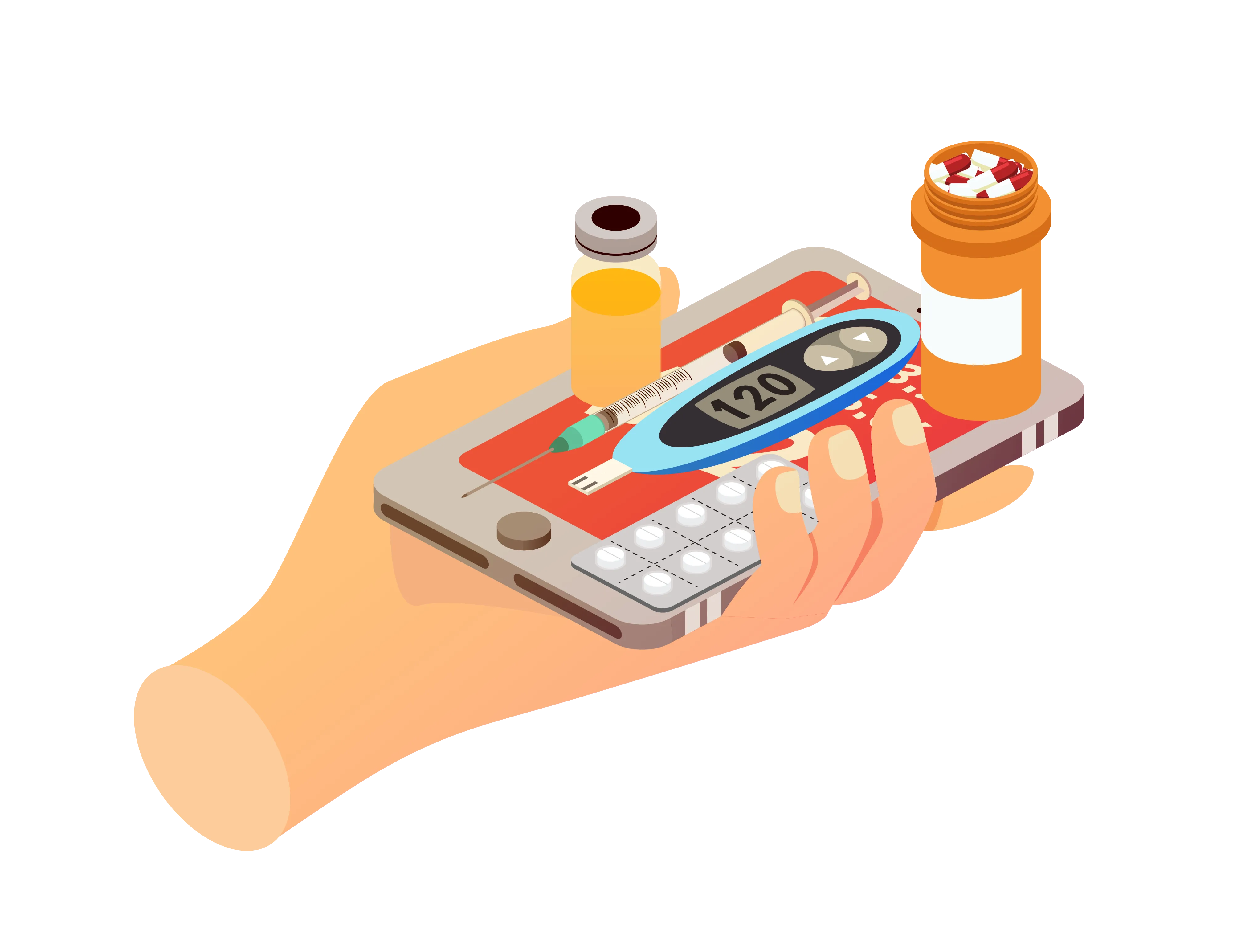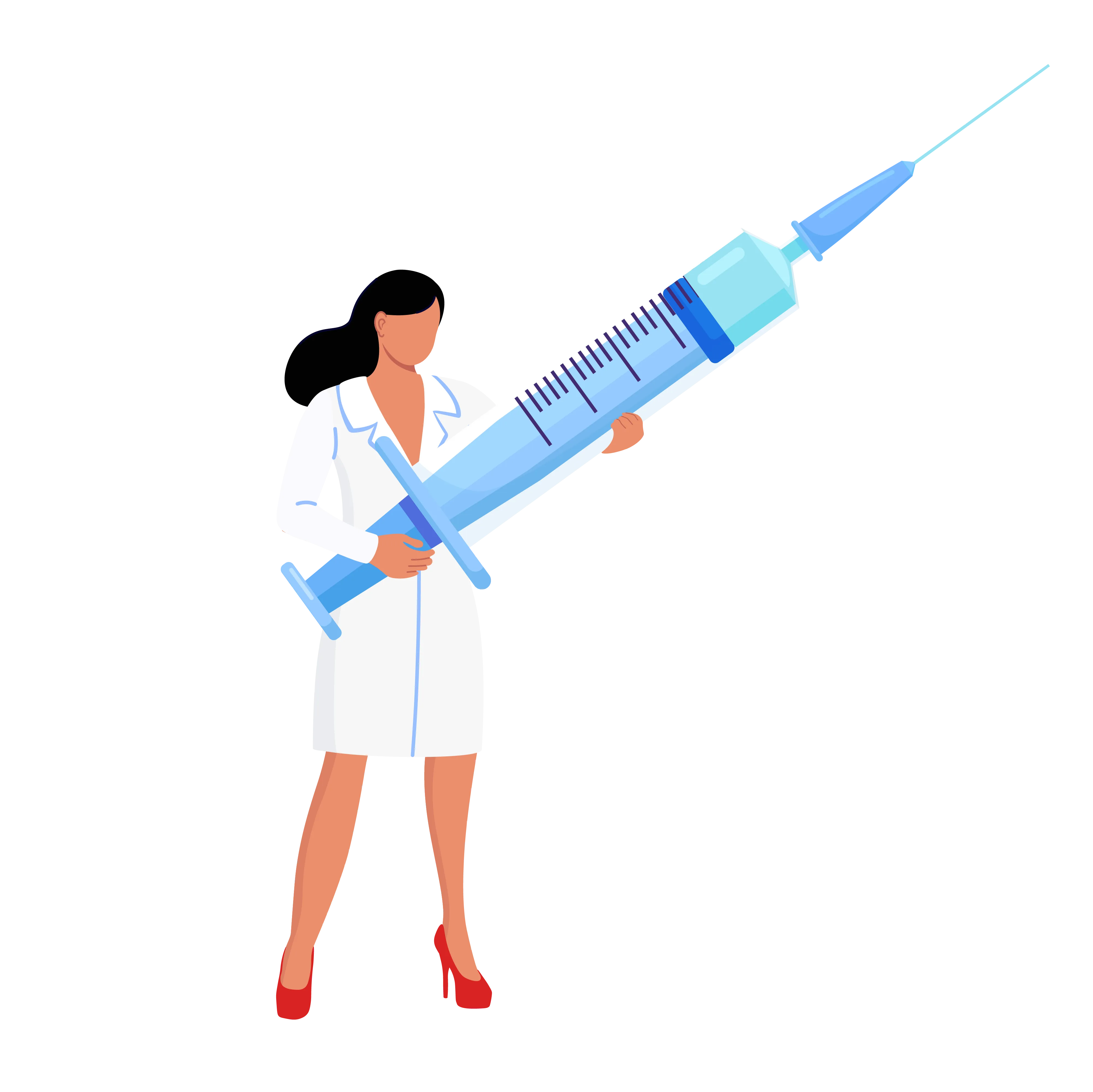Diabetes | 6 min read
Insulin Dose Calculation: Why is it Important and How to Compute Yours?
Medically reviewed by
- Table of Content
Key Takeaways
- Type-1 diabetes is known as insulin-dependent diabetes
- Insulin dose calculation determines the insulin units needed
- The more carbohydrate you eat, the more insulin you require
Diabetes is more common in low and middle-income countries with around 422 million cases worldwide, according to the World Health Organization [1]. The most common diabetes, Type 2, occurs when your body fails to use insulin effectively. Type 1 diabetes or insulin-dependent diabetes, on the other hand, is a chronic condition where your body doesn't produce enough insulin.
In this case, your diabetic blood sugar levels are likely to be unpredictable. This is when doctors may recommend insulin doses to help you maintain your blood sugar levels. You may be either on a fixed insulin dose therapy or a flexible dose therapy as advised [2]. Knowing how to calculate how much insulin to take will help you manage diabetes better.
Read on to know why and how to calculate insulin dose as a diabetic or a caregiver to a diabetic.
Why Is Insulin Dose Calculation Necessary?
Insulin dose calculation helps you manage your blood sugar level efficiently. Knowing the insulin on board and the dose you need helps you in many ways. You can ascertain if you need to increase insulin to level off high blood sugar or to reduce the carbohydrates that you eat. It helps you keep track of certain activities too, such as knowing if it is safe to take a walk without your blood sugar going low or if you should have something to eat before bed.
Additional Read: All you Need to Know About Type 1 Diabetes and Diet Control
How to Calculate Insulin Dose?
You can use certain apps and an online insulin calculator or insulin correction dose calculator to compute and keep track of the required rapid-acting insulin dose. However, you can also calculate the units for carbohydrate, blood sugar correction, and total meal insulin dose by using manual formulae.
Carbohydrate Coverage Dose
The insulin to carbohydrate ratio determines the bolus dose for food coverage. It depicts how much carbohydrate is disposed of by 1 unit of insulin. The actual units of insulin depend on a person’s sensitivity to it. Usually, one unit of such a dose disposes of 12-15 grams of CHO or can even range from 4 to 30 grams based on sensitivity.
For carbohydrate coverage insulin dose calculation, use the formula below.
CHO insulin dose = Total grams of CHO in the meal / grams of CHO disposed of by 1 unit of insulin
For example, assume you will consume 80 gram of carbohydrates in your meal and your insulin ratio is 1:10.
CHO insulin dose = 80 gram / 10 = 8 units
Thus, you will need 8 units of insulin to dispose of the carbohydrates.

High Blood Sugar Correction Dose
This refers to the amount of rapid-acting insulin units required to drop a high blood sugar level. Normally, one unit of insulin drops blood sugar by 50 mg/dl. However, it can range from 15 to 100 mg/dl depending on a person’s sensitivity to insulin.
For high blood sugar correction insulin dose calculation, apply the following formula.
High blood sugar correction dose = Target blood sugar - actual blood sugar / correction factor
For example, assume you require 1 unit of insulin to drop 50 mg/dl of blood sugar. Thus, your correction factor is 50 points. Your blood sugar before a meal is 230 mg/dl and your target is 130 mg/dl. Fill these figures in the formula to arrive at the required blood sugar correction dose.
Correction dose = 230 – 130 / 50 = 2 units
Thus, you require 2 units of high blood sugar correction dose to reach the target level.
Total Mealtime Dose
Add the carbohydrate coverage dose and high blood sugar correction dose to get the total mealtime dose.
Total meal insulin = carbohydrate coverage dose + high sugar correction dose
For example, consider that you require 8 units of rapid-acting insulin for carbohydrate coverage dose and 2 units of insulin for high blood sugar level correction dose. Now, enter the data into the formula for total meal insulin dose calculation.
Total meal insulin dose = 8 units + 2 units = 10 units.
Thus, your total meal insulin dose will be 10 units of rapid-acting insulin.
Around 40-50% of the total daily insulin is administered to replace insulin overnight and 50-60% is for carbohydrate coverage and high blood sugar correction [3].

What Factors Affect Insulin Dosage?
- The amount of carbohydrate you intake: The more carbohydrate you eat, the more insulin dose you need.
- Resistance to insulin: When your body cells don’t respond properly to insulin, you will need to inject more insulin to lower blood sugar levels.
- Exercising and physical activity: Exercising requires glucose to boost muscles causing diabetic blood sugar levels to drop. This increases sensitivity to insulin.
- Body mass: In most cases, insulin requirements increase with age.
- Illness: When you are unwell, your body raises your blood sugar levels requiring you to take more insulin to lower the level.
Can You Go Back to Life Without Insulin Shots?
Many people suffer from insulin hormone deficiency due to diabetes. If not treated, this can lead to deadly consequences. Patients are injected insulin doses daily for their body to function properly. However, you may wonder if it is possible to survive without insulin if you don’t get access to it. The conventional thought is that your body can go without insulin for 3 to 4 days on average. After that, you may face severe complications. However, it is better to consult with a doctor as every person’s sensitivity to insulin differs. Also, researchers are now successfully identifying and administering alternatives to insulin [4].
Additional Read: 10 Important Diabetes Tests for a Healthy LifeNot keeping your diabetic blood sugar levels under control can lead to severe health problems. Thus, insulin dose calculation is important to understand when you need a correction dose or a diet change. Scheduling regular and timely medical check-ups is equally important for your health. Book an online doctor consultation on Bajaj Finserv Health to access the best medical specialists near you. Protect yourself from diabetes you can avail diabetes health insurance.
- References
- https://www.who.int/health-topics/diabetes#tab=tab_1
- https://www.diabetes.co.uk/insulin/insulin-dosage.html
- https://dtc.ucsf.edu/types-of-diabetes/type2/treatment-of-type-2-diabetes/medications-and-therapies/type-2-insulin-rx/calculating-insulin-dose/
- https://www.sciencedaily.com/releases/2013/09/130903123358.htm
- Disclaimer
Please note that this article is solely meant for informational purposes and Bajaj Finserv Health Limited (“BFHL”) does not shoulder any responsibility of the views/advice/information expressed/given by the writer/reviewer/originator. This article should not be considered as a substitute for any medical advice, diagnosis or treatment. Always consult with your trusted physician/qualified healthcare professional to evaluate your medical condition. The above article has been reviewed by a qualified doctor and BFHL is not responsible for any damages for any information or services provided by any third party.



